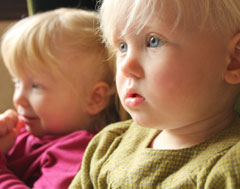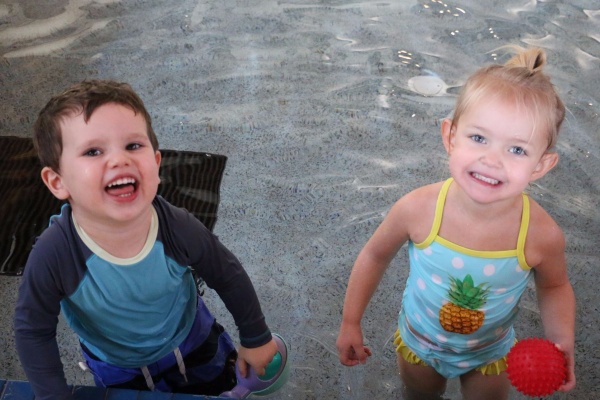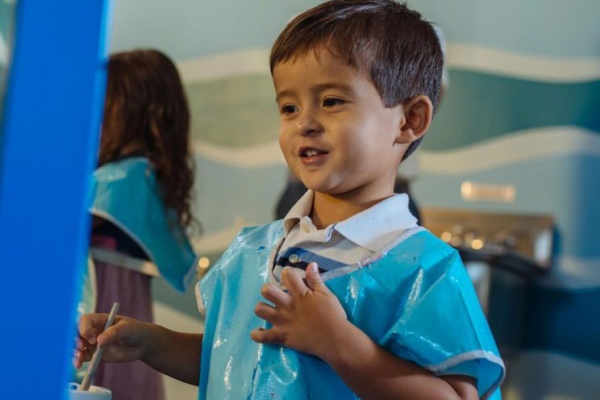
Plugged In But Not Tuned Out
We have all heard that the television emits beams that  liquify your child's brain on contact, and that letting your child watch television is no better than letting them play in traffic.* However, in today's ubiquitously plugged in society, is a strict anti-television and computer stance very reasonable or even still valid?
liquify your child's brain on contact, and that letting your child watch television is no better than letting them play in traffic.* However, in today's ubiquitously plugged in society, is a strict anti-television and computer stance very reasonable or even still valid?
Since parenting is all about the shades of gray, and nothing can ever simply be black and white, here are a couple of factors to consider before taking a stance on your child's media consumption:
Be an Ageist
One of the (very few) parent truisms is that proper social development is an important key to a child's success. As an infant, children are starting to piece together non-verbal cues from those around them, which taken together forms their first social interactions.
But consider this, while Dora may be introducing older children to Spanish words, for our littlest learners all verbal communication is like hearing a foreign language and they are relying on a softening of the eyes, a tilt of the head, and other visual clues to discern what is being said to them... visual clues that both puppets and cartoons are wholly incapable of producing.
The key communication lessons they need to learn aren't being taught to them so watching television is an even more passive, and most likely very disorienting experience for them. It could even be going as far as to inhibit your child's social interactions.
As a new parent, and one who has been known on more than one occasion to spend an entire day watching old movies and E! True Hollywood Stories, I thought that all of the turn-off-the-TV hype was an overreaction. Until after instituting a strict no-TV policy in our home for one week I saw a dramatic increase in my 10 month-old's attempts at interactions and efforts to communicate with us- it was truly astounding the difference after just seven short days.
So the simple solution seems to be turning off the TV right? Not so fast.
Making Media Consumption Social
Completely tuning out in today's society just isn't a feasible option. In fact, for all of the junk out there on the web and television there are also some great educational tools for parents to take advantage of. And, just like indulging in sweet frosted cupcakes, approaching media with caution and moderation will offer parents value while mitigating the harmful affects.
While some children's television shows, like Super Why, Dora the Explorer, and Ni Hau Kai Lan just off the top of my head, have made strides to become more interactive by asking children questions and waiting for responses, making television or computer time an activity that you participate in together is a great way to temper their consumption.
Just like whipping out the blocks and playing together, turning on the computer and searching for animals found in the jungle, or sitting your little one on your lap and singing along together takes the activity from passive to social, and also makes monitoring content much easier.
The older your child gets the more freedom they will need, and completely cutting them off from media becomes less reasonable. Besides, who wants to raise a child that views computers with the same sense of apprehension that some of our senior citizens do?
I would go as far as to say that, just like teaching our kids about colors and numbers, familiarizing our children with technology is now part of the parenting gig. And with the deluge of information (and misinformation) now available at just the click of a mouse or a push of the remote button, teaching our children to be discerning media consumers is also an important part of our job and will pay off in spades when they do become independent media consumers.
*This may be a slight exaggeration
By Melody Meiners, education blogger for Smart Parenting





















